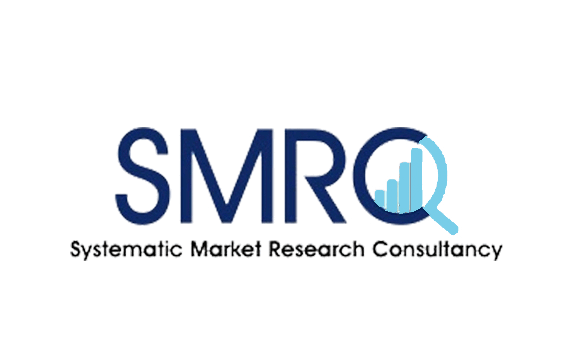HomeTag
Blog
In today’s hyper-competitive business world, gaining insights into consumer behaviour is key to the success of any company. In order to gain these insights, market research is often conducted using techniques such as focus groups or in-depth interviews (IDIs). However, deciding which technique to use can be a daunting task, and can have a significant impact on the accuracy of the insights obtained. In this article, we will explore the differences between IDIs and focus groups and when each technique is best used.
What are In-Depth Interviews (IDIs)?
In-depth interviews are a qualitative research technique that involves one-on-one conversations between a researcher and a participant. The goal of IDIs is to gather detailed and personal insights from the participant about their experiences, opinions, and feelings. IDIs are best suited for situations where the research goal is to understand an individual’s unique perspective on a topic.
For example, if you want to understand how customers feel about a new product or service, you can use IDIs to gather detailed feedback from each participant. This allows you to gain a deeper understanding of their thoughts and opinions than you might get from a larger group setting.
Another benefit of IDIs is that they allow researchers to explore sensitive topics that participants might not feel comfortable discussing in a group setting. For example, if you want to conduct research on a sensitive health topic, IDIs provide a more private and safe environment for participants to share their experiences.
Advantages of IDI:
- In-Depth Information: IDIs allow for more detailed and comprehensive information to be obtained as compared to other research methods like surveys or focus groups. This is because IDIs allow researchers to delve deeper into the subject matter and explore complex issues or opinions that may be difficult to express in a group setting.
- Flexibility: IDIs can be conducted in person, over the phone, or online, which offers greater flexibility for both researchers and participants. This allows for interviews to be conducted at a time and place that is convenient for the participant and can result in a higher response rate.
- Participant Comfort: In a one-on-one interview setting, participants may feel more comfortable sharing sensitive or personal information as they are not influenced by the presence of others. This can lead to more honest and candid responses.
Disadvantages of IDI:
- Time-Consuming: IDIs can be time-consuming to conduct, as they require more one-on-one interactions with participants. This can be a disadvantage if the researcher has limited resources or a large sample size.
- Researcher Bias: The personal relationship established between the interviewer and interviewee can lead to bias in the data collected. This can occur if the interviewer’s questions or body language inadvertently influence the participant’s responses.
- Cost: IDIs can be more expensive than other research methods due to the need for trained interviewers, equipment, and travel expenses. This can be a disadvantage if the research budget is limited.
What are Focus Groups?Focus groups are a qualitative research technique that involves a moderator leading a discussion with a small group of participants. The goal of focus groups is to generate ideas and gather feedback on a particular topic through group discussion and interaction.
Focus groups are particularly useful for exploring topics that are complex, nuanced, or subjective. By bringing together a diverse group of participants, focus groups allow researchers to explore different perspectives and experiences related to a particular topic. This can lead to a more comprehensive understanding of the topic and uncover insights that may not have been discovered through individual interviews.
Additionally, focus groups provide an opportunity for researchers to observe group dynamics and how participants interact with one another. This can be useful in understanding how social influence affects attitudes and opinions. Focus groups are best suited for situations where you want to explore ideas, generate feedback, and gain insights into group dynamics.
Advantages of Focus Groups:- Gathering In-Depth Information: Focus groups allow for in-depth exploration of a topic, as participants can discuss and elaborate on their experiences, opinions, and beliefs in a group setting. This can lead to a more comprehensive understanding of the topic at hand.
- Group Dynamics: Focus groups encourage interaction and discussion between participants, which can lead to the emergence of new insights and perspectives. This can be especially useful when exploring complex or controversial issues.
- Cost-Effective: Compared to other research methods, such as one-on-one interviews, focus groups are relatively cost-effective. With a small group of participants, the cost of conducting a focus group is generally less than that of conducting individual interviews.
Disadvantages of Focus Groups:- Potential for Bias: The group setting of focus groups can lead to bias, as participants may be influenced by the opinions or attitudes of others in the group. This can be especially problematic if there are dominant personalities in the group who dominate the discussion.
- Limited Generalizability: Due to the small sample size and the potential for bias, the results of focus groups may not be generalizable to a larger population. It’s important to keep this limitation in mind when interpreting the findings.
- Difficulty in Recruiting Participants: Recruiting participants for a focus group can be challenging, especially if the topic is sensitive or if participants need to meet certain criteria. This can make it difficult to ensure a diverse and representative sample.
Choosing the Right Technique
When choosing between IDIs and focus groups, it is important to consider the research goals, budget, and overall requirements. IDIs are best used when the goal is to get opinions on isolated user experiences or when the topic is sensitive in nature. Focus groups, on the other hand, are better suited for generating new ideas or identifying trends.
In addition, it is important to consider the stage of the research process. IDIs are typically used in later stages of research, while focus groups are more useful in the initial stages. Finally, the business setting and overall requirements should be taken into consideration. For example, if the research needs to be conducted in a specific location, such as Dubai or GCC, it is important to select a research company that has a presence in that location.
SMRC: The Ultimate Market Research Solution
When it comes to market research in Dubai and GCC, SMRC is the go-to solution. With a dedicated field team in UAE and Oman, and thousands of panel shops across industries, SMRC offers the most comprehensive universe census capabilities. SMRC’s expertise extends to industries such as automotive, FMCG, confectionery, optics, tobacco, retail, and fashion.
SMRC offers a range of research solutions, including ad hoc research, infographic reports, and daily dashboards. In addition, SMRC’s surveys include geo-location tracking, allowing for more targeted research. SMRC also offers advanced analytic solutions and data verification strategies to ensure the accuracy of research findings.
Choosing the Right MethodologyWhen deciding between IDIs and focus groups, there are several factors to consider:
Research Goals
The first consideration when choosing a methodology is your research goals. IDIs are best suited for situations where you want to understand an individual’s unique perspective on a topic. Focus groups, on the other hand, are best suited for exploring group dynamics and generating ideas through group discussion.
Sensitive Topics
If you are researching a sensitive topic, such as health or personal finances, IDIs may be a better choice. IDIs provide a more private and confidential setting for participants to share their experiences and opinions.
Group Dynamics
If you want to understand how social influence affects attitudes and opinions, focus groups may be a better choice. By observing group dynamics, you can gain insights into how participants influence one another and how group norms and values affect attitudes and behaviors.
Budget and Timeline
Finally, budget and timeline are important considerations when choosing a methodology. IDIs are typically more expensive and time-consuming than focus groups, as they involve one-on-one interviews. Focus groups, on the other hand, can be conducted with multiple participants at once, making them more cost-effective and efficient.
Key Takeaways
In conclusion, both in-depth interviews and focus groups are valuable tools for conducting qualitative research. When deciding which methodology to use, it’s important to consider your research goals, the sensitivity of the topic, group dynamics, and your budget and timeline. By carefully evaluating these factors, you can choose the right methodology to ensure the best result.

